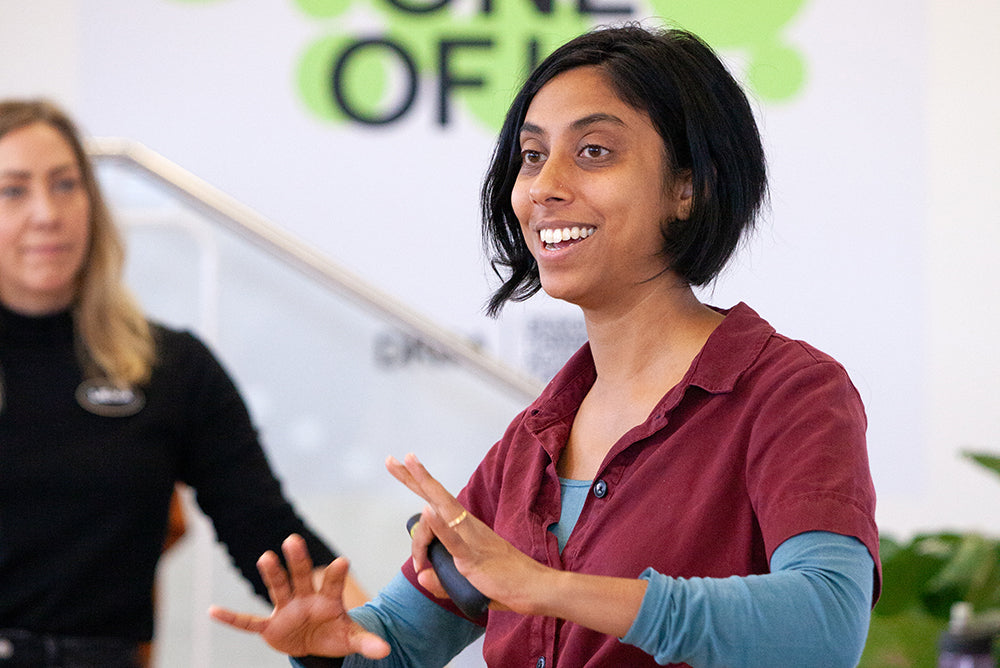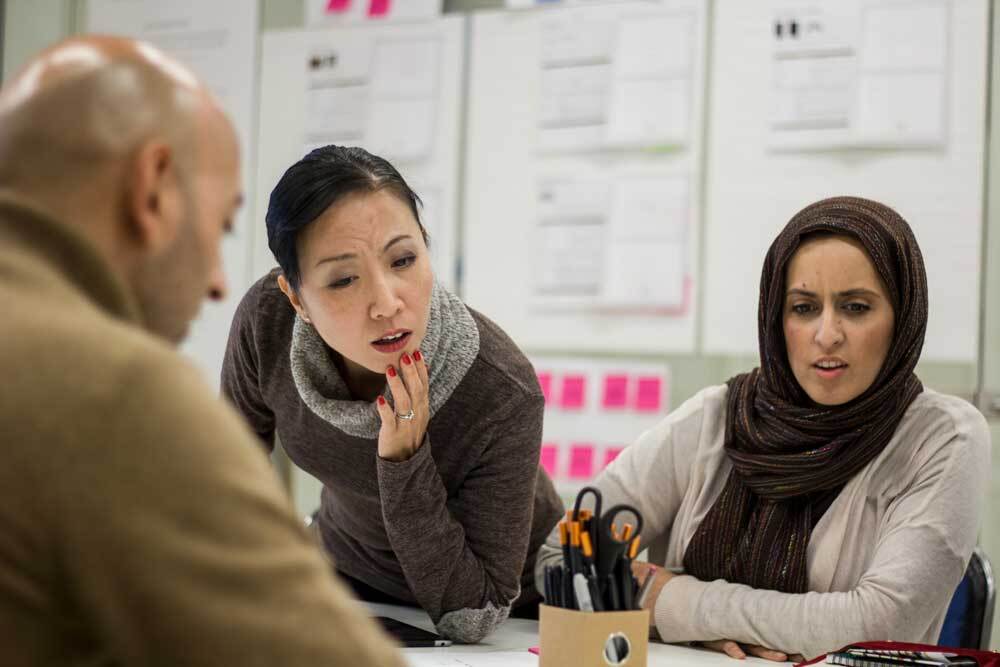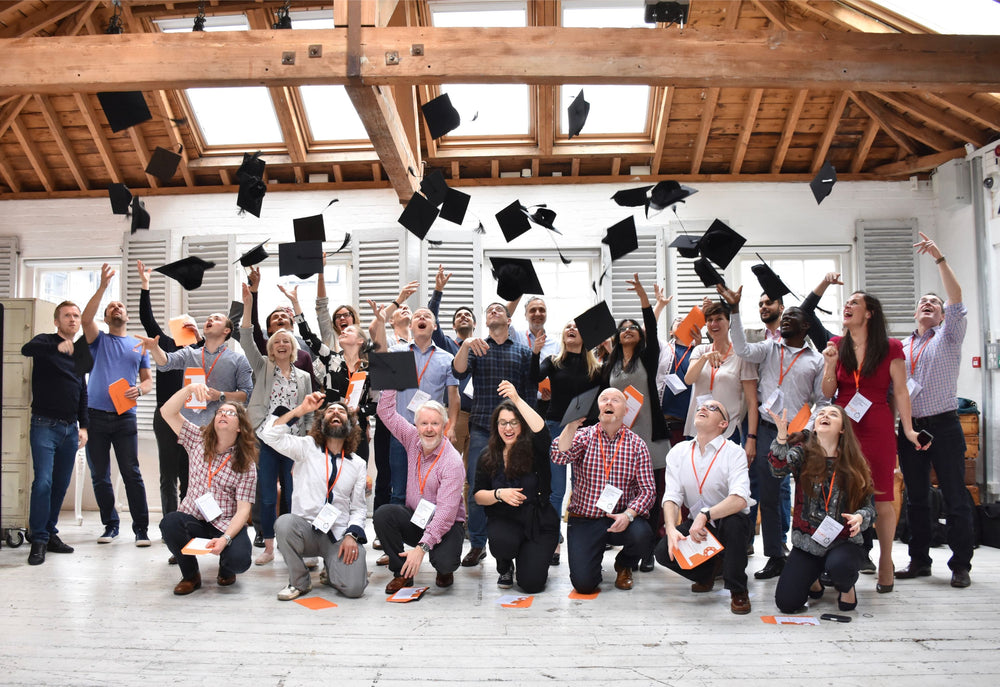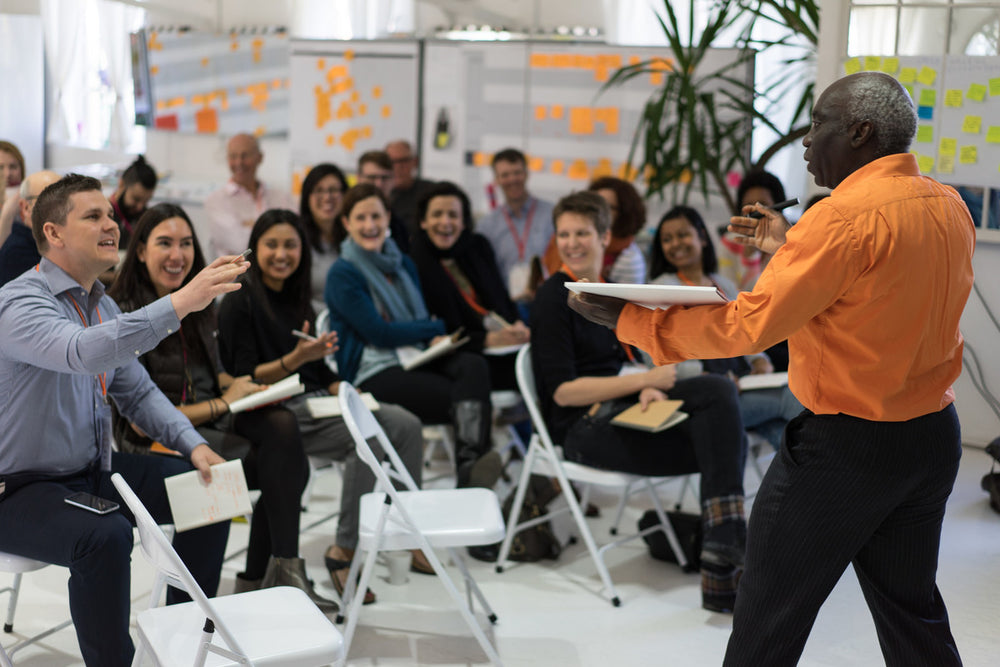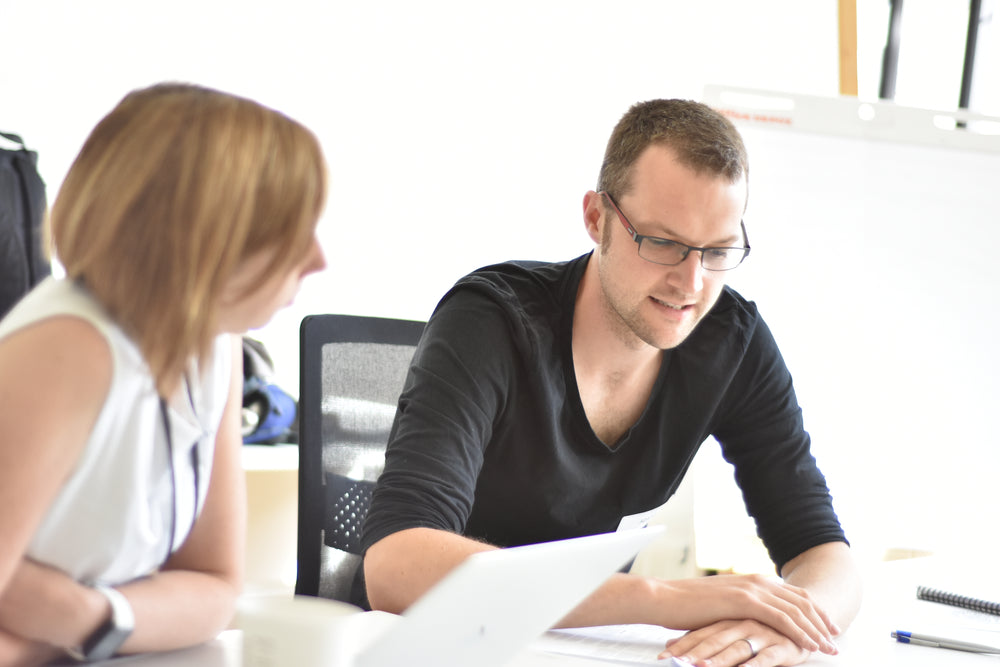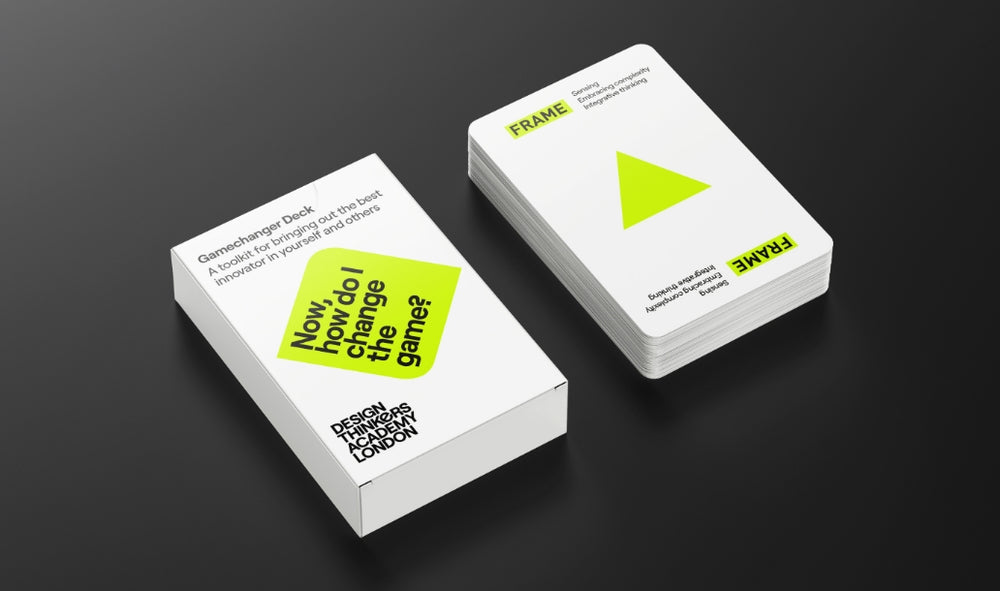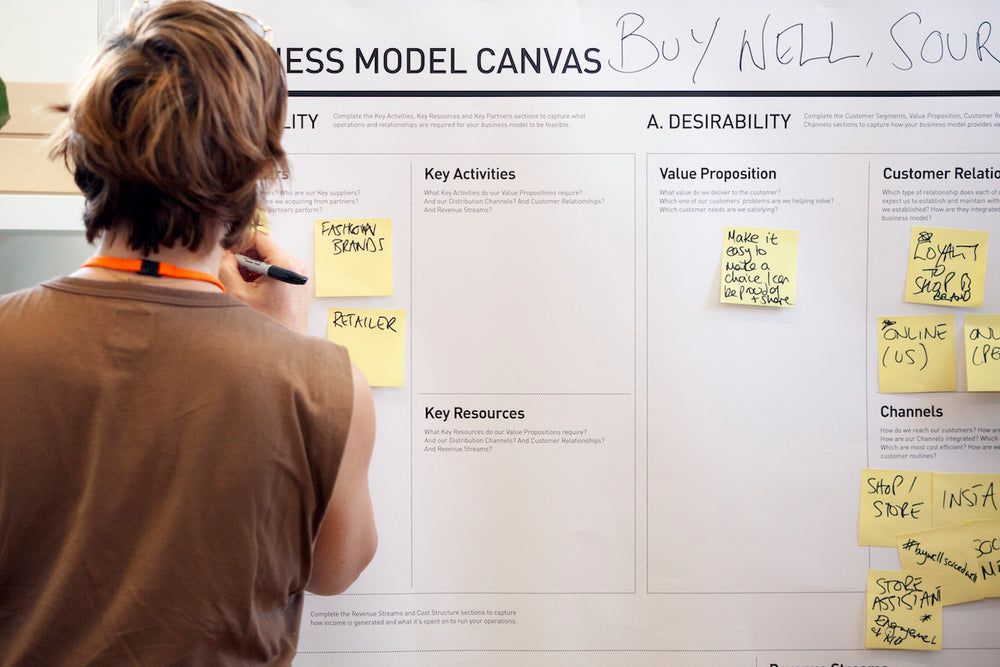“What makes our Design Thinking Bootcamps truly unique is that we work on a real-life social challenge, set by a client. These sponsor clients come from a variety of places – charities, not-for-profits, government departments. The problems they bring to us are always challenging, engaging and thought provoking. This makes the delegate training experience even more purposeful.”
Holly May Mahoney, Design Lead
The natural allure for delegates to any of our Design Thinking courses is the chance to learn all the tools and techniques of design thinking and facilitation, from some of the leading names in the industry. Our Design Thinkers Bootcamp is at the centre of this. Over 5 fast paced days, delegates get immersed in a design thinking world, driven by masterclass sessions from expert coaches.
However, the course is not only that. Running alongside any Bootcamp is a challenge. This is as much a defining feature of the course as the tools and techniques. See, a key part of design thinking is that you must learn by doing. This isn’t a course to be lectured at and soak it all in. No, design thinking is all about getting up on your feet and giving something a try. So, naturally, we carry that ethos right through our courses, and it is the challenge that frames that.
The Challenge
So, on day one of each Bootcamp a sponsor arrives to deliver a unique challenge to the delegates. The delegates will then work towards that challenge all week. For each and every Bootcamp we choose a different challenge that is given by a different sponsor. And, each and every time, that challenge is working towards a genuine, social issue. An issue in need of innovation.
Carefully chosen to avoid the commercial world and any conflicts of interest, the challenges are delivered by sponsors who themselves are often looking for ideas to innovate. As a result, the course not only is a training course, but in turn it provides ideas that the sponsors are then able to use to help them with their issue. This has taken form in one of our previous Bootcamps with Guy’s and St Thomas’ NHS Trust. The challenge was to improve the patient experience, focussing on specific scenarios. Since then, some of the created solutions to general rheumatology referrals, are being implemented in a prototype stage.

At the Design Thinkers Academy London, we see the vast potential for design thinking to improve the world. Bootcamp offers the opportunity to bring that in at an early stage, whilst also providing a satisfying challenge for our delegates.
So, if you’re interested to find out more about the types of challenges, have a look below to see some of our previous challenges. And, if you want to know more about them, don’t hesitate to get in touch.
Challenge: How do we inform and inspire 15 to 17 year olds about nursing as a professional pathway, such that they consider it a viable career route for them and their peers?
Client: NHS Horizons
You can read more about this challenge here, as we explore the week in detail, looking at the various outputs from the week.
Challenge: How can we help consumers to make more socially and environmentally responsible purchasing decisions when it comes to buying clothes?
Client: Not My Style
Find out more here, all about the week and the different solutions that were presented at our Jury Panel.
Challenge: How can we harness the appetite among UK citizen-consumers for swift action on plastic waste and pollution to deliver fresh, impactful and systemic solutions?
Client: SAP for Good / SAP Leonardo.

Challenge: How might we help people to take ownership of their home’s indoor air quality so they, and their families, can live as healthily as possible?
Client: Global Action Plan Clean Air Challenge.
Challenge: How can we empower ex-offenders to engage and integrate within their local community?
Client: Her Majesty Prison and Probation Office (HMPPS).
Challenge: With an ageing population, increasing in disabilities and handicaps, how can we find seamless multi-modal travel for all?
Client: HS2.
Challenge: With much of legal aid being removed in family courts, leading to ill prepared individuals, representing themselves in court, how can we prepare people without legal representation for the family court process?
Client: Ministry of Justice Digital.
Challenge: Considering that ethnic communities contain some rare blood types that are urgently needed, how can we encourage more ethnic minorities (BAME) to give blood?
Client: NHS Bloodbank.
Challenge: How can the NHS help busy staff on evening and night shifts get easy access to healthy appetising food choices?
Client: NHS.
Challenge: How can charity ‘Women in Sport’ work with employers and those who manage a workforce or workplace in future, to improve participation in sport for a broad range of women?
Client: Women in Sport.
